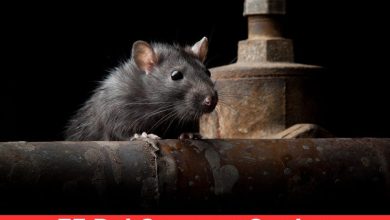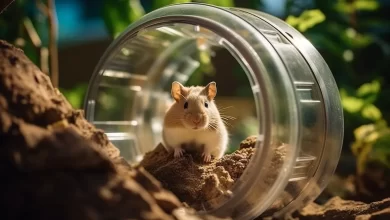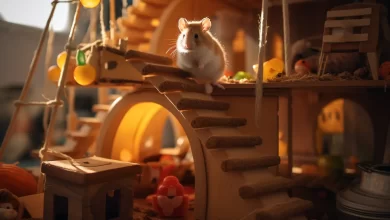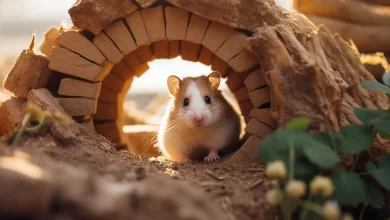9 Fascinating Facts About Baby Rats That You Probably Didn’t Know
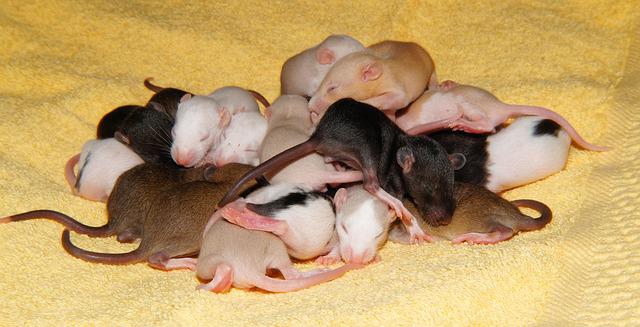

Do you know what baby rats are like? They are actually quite fascinating creatures, and there are a lot of things that you may not know about them.
For example, did you know that baby rats are born blind and deaf? They rely on their keen sense of smell to find their way around and locate their mother.
In this blog post, we will discuss 10 interesting facts about baby rats. We hope that you will find these facts as fascinating as we do!
What is the difference between a baby mouse and a baby rat?
For starters, baby rats are born blind and hairless. Their eyes and ears open after about two weeks, but they’re not fully developed until around four weeks old.
At birth, baby rats weigh only a few grams, but they grow quickly – doubling their weight in just one week!
Baby rats are also very active from the start. They start to explore their surroundings and play with each other just a few days after they’re born.
Did you know that baby rats have poor eyesight?
It’s true! Their vision isn’t fully developed until around four weeks old. In the meantime, they rely on their other senses – particularly their sense of smell – to get around.
Baby rats are also born without any teeth. Their first set of teeth – called incisors – start to come in at around three weeks old. By six weeks old, they have their full set of adult teeth.

What is a baby rat’s trait?
Baby rats are social creatures and enjoy spending time with other rats. In fact, they actually prefer the company of other rats to that of humans!
They are also very curious creatures and love to explore their surroundings. This can sometimes get them into trouble, as they’re not afraid to try new things – even if those things might be dangerous.
What does a baby rat look like?
A baby rat is called a kitten or pup. At birth, a kitten weighs only about 20 grams (0.71 ounces) but will gain weight quickly during its first few weeks of life. At three weeks old, a kitten will typically weigh about double its birth weight. A baby rat’s fur is usually gray or brown and its tail is long and thin.
What do baby rats eat?
During the first few weeks of life, baby rats will drink their mother’s milk. After about three weeks, they will start to eat solid food.
A diet for a baby rat should include high-quality lab blocks, fresh vegetables, and water.
How long do baby rats stay with their mother?
A baby rat will usually stay with its mother until it is about eight weeks old. After that, it will be ready to live on its own.
Do baby rats need to be handled?
Yes, baby rats should be handled from a young age. This will help them become accustomed to humans and make them less likely to bite. It is important to handle baby rats gently and avoid rough play.

What are some common health problems in baby rats?
Some common health problems in baby rats include respiratory infections, mites, and ear infections. Respiratory infections are the most common health problem in baby rats and can be fatal if left untreated.
Mites are tiny parasitic creatures that can cause itching and hair loss in baby rats. Ear infections are also common and can be painful for baby rats.
Is baby rats good to be a pet?
Yes, baby rats can make great pets. They are intelligent and can be trained to do tricks. Baby rats are also relatively low-maintenance, only needing a good diet and regular exercise. If you are considering getting a pet rat, a baby rat is a great option.
There are a few things to keep in mind if you are thinking about getting a baby rat as a pet.
- First, they require regular handling and socialization. Without this, they can become aggressive and bite.
- Second, they need a good diet that includes fresh vegetables and high-quality lab blocks.
- And lastly, baby rats are susceptible to common health problems like respiratory infections, mites, and ear infections.
But if you are willing to provide the care they need, baby rats can make wonderful and loving pets.
Have you ever considered getting a pet rat? Baby rats can make great pets! They are intelligent and can be trained to do tricks with proper handling and socialization.
Their diet should include fresh vegetables and high-quality lab blocks. However, keep in mind that they are susceptible to common health problems like respiratory infections, mites, and ear infections.
If you are willing to provide the care they need, baby rats can make wonderful and loving pets. We also have prepared complete pet rat names to inspire you to find a good name!
Source:
- Animal corner
- Rat behavior
